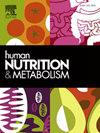The effect of probiotic (Clostridium butyricum) on adult patients with atopic dermatitis: a retrospective cohort study from TriNetX
IF 1.8
Q3 ENDOCRINOLOGY & METABOLISM
引用次数: 0
Abstract
Background
Previous research on probiotics has mainly focused on eczema in infants and pregnant women, with limited benefits observed in adults. Miyarisan, a probiotic known for supporting gut barrier function, has not been extensively studied for its effects on eczema in adult populations.
Methods
We used the TriNetX global network (2014–2024) to compare Miyarisan users with non-users among eczema or dermatitis patients. Propensity score matching (PSM) reduced bias, and hazard ratios (HRs) with 95 % confidence intervals (CIs) and Kaplan-Meier curves assessed skin outcomes based on the SCORAD index. Subgroup analyses explored variations by sex, age, and medication refill frequency, with a sensitivity analysis focusing on atopic dermatitis patients.
Results
Following 1:1 PS M, the study analyzed 1600 cases in each group (Miyarisan users and non-users) without difference between baseline variables. The incidence of itching (HR = 0.372, 95 % CI: 0.287–0.481, p < 0.001), redness (HR = 0.065, 95 % CI: 0.040–0.108, p < 0.001), dryness (HR = 0.358, 95 % CI: 0.285–0.449, p < 0.001), swelling (HR = 0.164, 95 % CI: 0.101–0.265, p < 0.001), scratching (HR = 0.426, 95 % CI: 0.296–0.612, p < 0.001), and thickening (HR = 0.325, 95 % CI: 0.225–0.467, p < 0.001) were significantly lower in the Miyarisan group compared to the non-Miyarisan group. These benefits were consistent across different gender and age subgroups. According to individual SCORAD measures, reduced skin redness was consistently observed across all subgroups. When focusing on atopic dermatitis, Miyarisan users also showed a lower risk of adverse skin outcomes, similar to patients with eczema or dermatitis.
Conclusion
Miyarisan use in adults may reduce the recurrence of eczema or dermatitis, with consistent benefits across both sex and age groups. These findings are also observed in patients with atopic dermatitis.
益生菌(丁酸梭菌)对成人特应性皮炎患者的影响:来自TriNetX的回顾性队列研究
以往对益生菌的研究主要集中在婴儿和孕妇的湿疹上,对成人的益处有限。Miyarisan是一种以支持肠道屏障功能而闻名的益生菌,其对成人湿疹的影响尚未得到广泛研究。方法采用TriNetX全球网络(2014-2024)对湿疹或皮炎患者中使用Miyarisan和未使用Miyarisan的患者进行比较。倾向评分匹配(PSM)减少了偏倚,95%置信区间(ci)的风险比(hr)和Kaplan-Meier曲线基于SCORAD指数评估皮肤结果。亚组分析探讨了性别、年龄和药物补充频率的变化,并对特应性皮炎患者进行了敏感性分析。结果在1:1 PS M后,研究分析了每组(Miyarisan使用者和非使用者)1600例病例,基线变量之间无差异。瘙痒发生率(HR = 0.372, 95% CI: 0.287-0.481, p <;0.001),红(HR = 0.065, 95%置信区间CI: 0.040 - -0.108, p & lt;0.001),干燥(HR = 0.358, 95%置信区间CI: 0.285 - -0.449, p & lt;0.001)、肿胀(HR = 0.164, 95%置信区间CI: 0.101 - -0.265, p & lt;0.001),抓(HR = 0.426, 95%置信区间CI: 0.296 - -0.612, p & lt;0.001)和增厚(HR = 0.325, 95%置信区间CI: 0.225 - -0.467, p & lt;0.001),宫崎骏组明显低于非宫崎骏组。这些益处在不同性别和年龄的亚组中是一致的。根据个体的SCORAD测量,在所有亚组中都一致观察到皮肤发红的减少。当专注于特应性皮炎时,Miyarisan使用者也显示出较低的不良皮肤结果风险,类似于湿疹或皮炎患者。结论:在成人中使用miyarisan可以减少湿疹或皮炎的复发,在性别和年龄组中都有一致的益处。这些发现也见于特应性皮炎患者。
本文章由计算机程序翻译,如有差异,请以英文原文为准。
求助全文
约1分钟内获得全文
求助全文
来源期刊

Human Nutrition and Metabolism
Agricultural and Biological Sciences-Food Science
CiteScore
1.50
自引率
0.00%
发文量
30
审稿时长
188 days
 求助内容:
求助内容: 应助结果提醒方式:
应助结果提醒方式:


